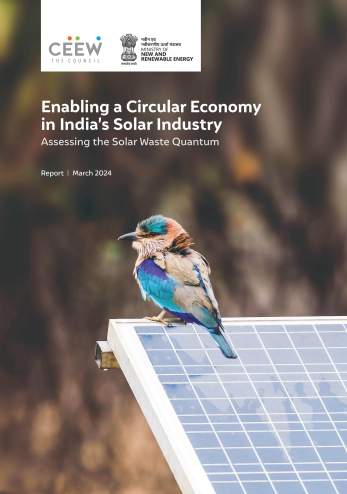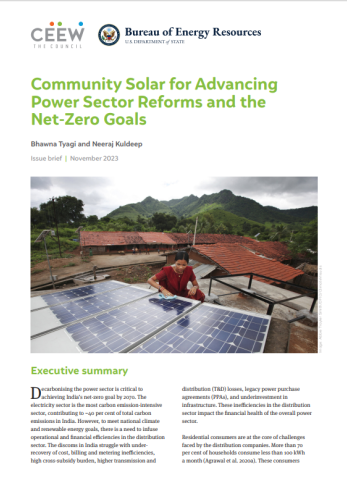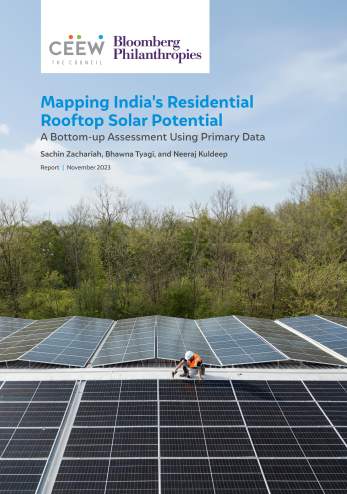Report
Women Working in the Rooftop Solar Sector
A Look at India’s Transition to Clean Energy
Yoko Nobuoka, Sasmita Patnaik, Shaily Jha, Neeraj Kuldeep
February 2019 | Energy Transitions, Sustainable Livelihoods
Suggested Citation: IEA and CEEW. 2019. Women working in the rooftop solar sector. Paris: IEA.
Overview
This report takes the rooftop solar sector in India as a case study to assess the impact of a clean energy transition on women’s employment. Conducted in collaboration with the International Energy Agency (IEA), it is based on a survey of rooftop solar companies as well as qualitative interviews with women currently employed in the sector. It identifies opportunities for better gender balance at work, as well as barriers to achieving it.
While pursuing its renewable energy targets, India is also working to realise four of the United Nations Sustainable Development Goals: gender equality; access to affordable clean energy; inclusive and sustainable economic growth; and mitigation of climate change. India’s rooftop solar targets represent a major opportunity for sustainable development and for women’s employment.
Key Highlights
- Women account for an estimated 11 per cent of the workforce in the rooftop solar sector in India, significantly less than the global average of women in the renewables sector, at 32 per cent.
- However, this is higher than the percentage of women in other energy sectors in India, such as coal, oil and gas companies, and electricity utilities.
The ratio of female employees in selected sectors in India
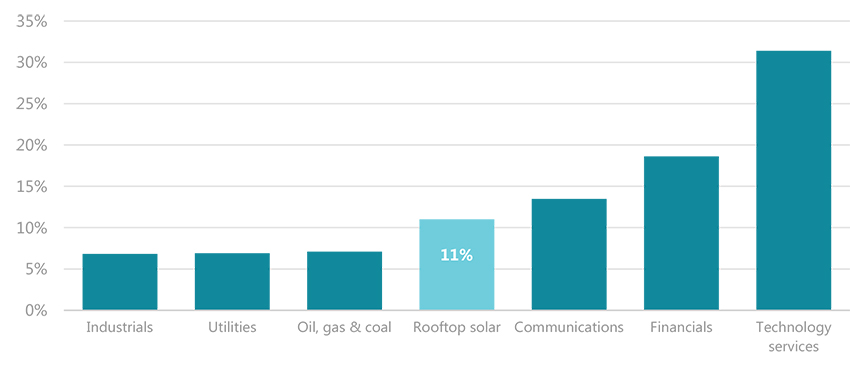
Note: The ratio indicates the simple average of the ratio of female employees of companies that disclose the information. 130 out of about 5 000 listed companies in India disclose gender-disaggregated employment numbers. Of those, there are 19 in industrials sector, 9 in utilities sector, 9 in oil, gas and coal, 5 in communications, 24 in financials, and 7 in technology.
Source: IEA-CEEW survey 2018, company disclosure. Bloomberg LP (2019), Bloomberg Terminal
- Women’s participation varies across the value chain of rooftop solar companies. The design and pre-construction phase, and corporate segment – which offer mostly office-based positions – have a relatively high share of female employees at 18 per cent and 34 per cent, respectively.
- In the area of construction and commissioning, women constitute three per cent, and, in operations and maintenance, a mere one per cent. Both areas involve frequent site visits or onsite work.
The share of female employees in India’s rooftop solar sector, by position
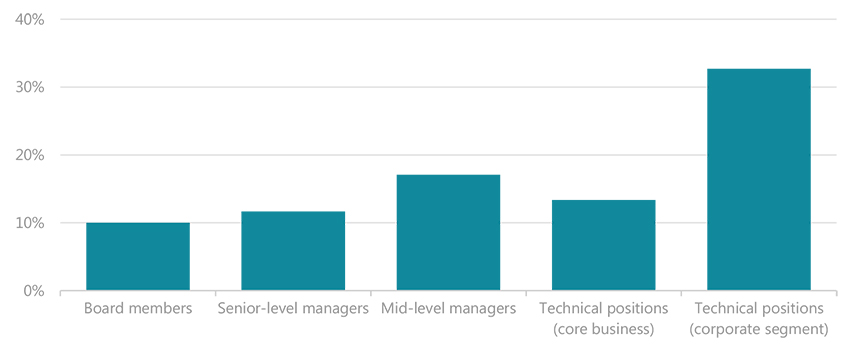
Note: Technical positions indicate positions classified as highly skilled jobs, for example, engineers and project managers in core business and accountants and HR specialists in corporate segment. The ratio of non-technical staff was asked in the survey but the responses are not displayed here due to the insufficient number of usable responses.
Source: IEA-CEEW survey, 2018
- Factors governing the low representation of women include a lack of access to opportunities for women due to safety and security concerns at project sites and misperceptions of women’s capabilities in some roles, insufficient human resource policies beyond legally mandated requirements, societal norms and practices at workplaces that fail to factor in the differentiated needs of women, and consciousness among employees.
- There is scope for policy makers to create gender-targeted policies to enable companies to advance toward gender parity and ensure that the sector’s growth will be gender-inclusive by tapping in the large, underutilised pool of India’s highly educated women.
While India has shown a strong commitment towards a clean energy transition through its renewable electricity installation target for 2022, deployment of rooftop solar technology has been slow. With the potential to create a large number of jobs in general, the rooftop solar sector also generates the types of jobs attractive to highly skilled women in particular, a largely untapped pool in India.
Given both the high number and diverse types of jobs that the rooftop solar technology sector generates, it is well positioned to adopt a gender-responsive approach to employment which will attract professionally educated and trained women.
With the potential to create a large number of jobs, the rooftop solar sector also generates the types of jobs attractive to highly skilled women in particular, a largely untapped pool in India.




